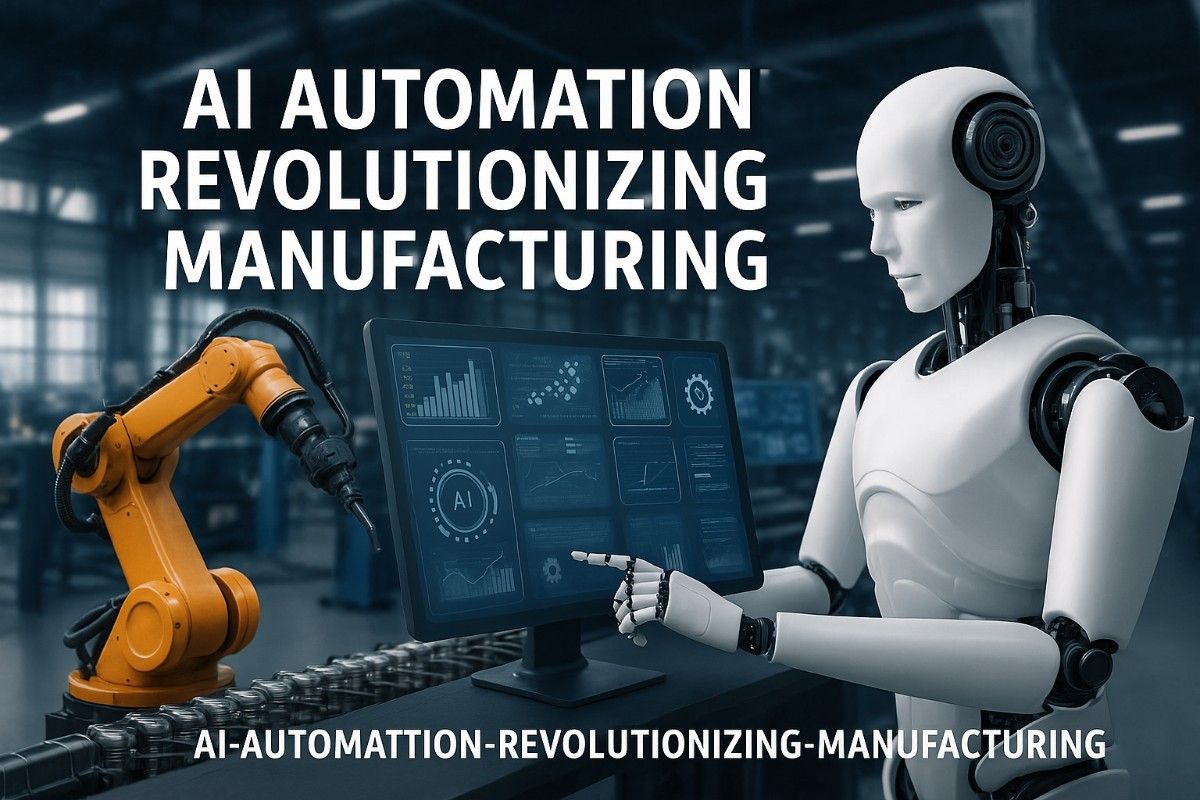The digital transformation of manufacturing represents the most significant industrial evolution since the advent of computer-aided manufacturing, fundamentally reshaping how products are designed, manufactured, delivered, and serviced through comprehensive integration of digital technologies, data analytics, and artificial intelligence throughout entire value chains. This paradigm shift transcends simple technology adoption, requiring fundamental reimagining of business models, operational processes, organizational structures, and strategic approaches that position manufacturers to thrive in an increasingly digital economy.
Manufacturers embracing comprehensive digital transformation strategies powered by AI through platforms like iFactoryapp are achieving extraordinary performance improvements including 50-70% productivity gains, 40-60% cost reductions, 65-80% quality improvements, 55-75% faster innovation cycles, and 35-50% customer satisfaction enhancements—creating sustainable competitive differentiation that establishes them as technology leaders capable of adapting rapidly to market disruptions, customer demands and competitive threats in dynamic global markets.
Global digital transformation market by 2027
Of enterprises adopting digital-first strategies
Average operational efficiency improvement
Return on digital investment within three years
What is Digital Transformation?: Understanding AI-Driven Systemic Change
Digital transformation in manufacturing encompasses the fundamental restructuring of operations, business models, and value propositions through strategic deployment of digital technologies including artificial intelligence, Internet of Things, cloud computing, advanced analytics, mobile technologies, and collaborative platforms. This transformation extends far beyond digitizing existing processes or implementing isolated technology solutions, requiring holistic reimagining of how organizations create value, engage customers, empower employees, and optimize operations through data-driven decision-making and intelligent automation.
AI serves as the catalyst that elevates digital transformation from simple digitization to intelligent, adaptive, continuously improving systems. While basic digitization converts analog information to digital formats and automates routine tasks, AI-driven transformation creates systems that learn from experience, predict future states, optimize complex decisions autonomously, and adapt dynamically to changing conditions without manual intervention. Machine learning algorithms analyze vast operational datasets to discover optimization opportunities invisible through traditional analysis, predictive models enable proactive rather than reactive management, and autonomous systems execute complex strategies exceeding human-designed approaches.
Intelligent Operations
AI-powered systems that continuously monitor, analyze, and optimize manufacturing processes in real-time, autonomously adjusting parameters to maintain peak performance while adapting to variations in materials, equipment conditions, and demand patterns.
Data-Driven Decision Making
Comprehensive analytics platforms that transform operational data into actionable insights, enabling evidence-based strategic planning, resource optimization, and performance management across all organizational levels from shop floor to executive suite.
Connected Ecosystems
Integrated digital platforms connecting suppliers, manufacturers, logistics providers, and customers for seamless information flow, collaborative planning, and coordinated execution that optimizes value chain performance beyond individual company boundaries.
Core Components of Manufacturing Digital Transformation
Successful digital transformation integrates multiple technology domains creating synergistic capabilities exceeding individual component contributions. IoT Infrastructure provides comprehensive connectivity through sensors, smart devices, and industrial networks capturing real-time operational data from equipment, processes, materials, and products. Cloud Computing Platforms deliver scalable infrastructure for data storage, advanced analytics, and collaborative access enabling distributed teams and geographically dispersed operations to work from unified information.
Artificial Intelligence and Machine Learning transform raw data into intelligence through pattern recognition, predictive modeling, optimization algorithms, and autonomous decision-making. Digital Twins create virtual replicas of physical assets and processes enabling risk-free experimentation, scenario simulation, and predictive optimization. Advanced Analytics extract actionable insights from complex datasets supporting strategic planning and operational improvement.
Mobile Technologies extend digital capabilities to shop floor workers, field service technicians, and remote experts through smartphones and tablets providing real-time information access, collaboration tools, and augmented reality guidance. Cybersecurity Frameworks protect digital assets, intellectual property, and operational systems from evolving threats. Integration Platforms connect disparate systems including enterprise resource planning, manufacturing execution systems, customer relationship management, and supply chain management creating unified digital environments eliminating information silos.
Why It Matters: Navigating Essential Industry Evolution
Digital transformation has evolved from competitive advantage to survival imperative as technology capabilities increasingly determine market success across manufacturing industries. Customer expectations have fundamentally shifted toward personalized products, rapid delivery, transparent sustainability performance, and seamless digital experiences—requirements that traditional manufacturing approaches cannot satisfy economically. Markets reward agility enabling rapid response to changing demands, new product introductions, and competitive threats while punishing inflexibility through market share loss and margin erosion.
Competitive dynamics intensify as digitally advanced manufacturers achieve superior cost structures, faster innovation cycles, better quality consistency, and enhanced customer experiences creating widening performance gaps versus traditional competitors. Technology companies entering manufacturing markets leverage digital capabilities disrupting established business models and customer relationships. Supply chain volatility exposed by recent global disruptions requires visibility, predictability, and adaptability impossible without comprehensive digital capabilities spanning supplier networks, logistics systems, and demand forecasting.
Regulatory environments increasingly mandate environmental performance documentation, supply chain transparency, product traceability, and compliance reporting that manual systems struggle to provide comprehensively and cost-effectively. Workforce challenges including skills shortages, aging demographics, and changing employee expectations require digital tools augmenting human capabilities, providing engaging work environments, and enabling remote collaboration. Investment communities favor digitally transformed manufacturers demonstrating technology leadership, operational excellence, and adaptation capabilities, reflected in valuation premiums and capital access advantages. Organizations delaying digital transformation face escalating competitive disadvantages, market relevance risks, and eventual obsolescence as technology mastery becomes fundamental to manufacturing competitiveness. Schedule a consultation to assess your digital transformation readiness and opportunities.
Accelerate Your Digital Transformation Journey
Partner with iFactoryapp to implement comprehensive AI-powered digital strategies that deliver measurable improvements in agility, efficiency, quality, and competitiveness through systematic technology integration and organizational evolution.
Book a Demo Contact SupportBenefits: Enhanced Agility and Comprehensive Efficiency Gains
Digital transformation delivers multifaceted benefits spanning operational performance, strategic capabilities, financial results, and competitive positioning. Organizations implementing holistic digital strategies using platforms like iFactoryapp achieve measurable improvements including 50-70% productivity increases, 40-60% cost reductions, 65-80% quality improvements, 55-75% faster innovation cycles, 45-65% inventory reductions, 60-80% better decision-making speed, and 35-50% customer satisfaction enhancements that create enduring competitive advantages and market leadership positions.
Unprecedented Organizational Agility and Responsiveness
Agility represents the most strategic benefit of digital transformation, enabling rapid adaptation to market changes, customer requirements, supply disruptions, and competitive threats that determine success in volatile business environments. Traditional manufacturing optimized for stability and efficiency struggles with variation and change, requiring extensive lead times for new products, process modifications, or business model adjustments. Digital transformation creates adaptive organizations capable of sensing market signals, making informed decisions rapidly, and executing changes efficiently.
Product development cycles compress 55-75% through digital design tools, simulation capabilities, virtual testing, and collaborative platforms enabling distributed teams to work concurrently rather than sequentially. Digital twins allow concurrent engineering where product design and manufacturing process development proceed simultaneously, identifying issues during design rather than after production failures. AI-powered generative design explores thousands of alternatives automatically, discovering optimal solutions faster than traditional approaches.
Manufacturing flexibility improves dramatically through digital systems managing complexity of producing customized products economically. AI scheduling optimizes for both variety and efficiency simultaneously, discovering configurations balancing diverse requirements. Reconfigurable automation adapts quickly to new products through software changes rather than mechanical retooling. Supply chain agility enhances through real-time visibility, predictive analytics, and dynamic coordination enabling rapid response to demand changes, supplier disruptions, and logistics challenges. Business model innovation accelerates through rapid experimentation, virtual validation, and data-driven assessment enabling exploration of servitization, subscription models, and ecosystem participation strategies previously too risky or costly to pursue.
Comprehensive Operational Efficiency Across Entire Value Chains
Efficiency improvements from digital transformation span all operational dimensions creating cumulative benefits far exceeding isolated technology implementations. Labor productivity increases 50-70% through intelligent automation handling routine tasks, AI augmenting human decision-making, digital work instructions reducing errors and training time, and optimized workflows eliminating waste. Equipment utilization improves 45-65% through predictive maintenance minimizing unplanned downtime, AI scheduling maximizing productive hours, and real-time monitoring enabling immediate response to performance degradation.
Material efficiency enhances 35-50% through precise process control reducing scrap and rework, predictive quality preventing defective production, optimization identifying opportunities for material substitution or reduced consumption, and comprehensive tracking eliminating waste from obsolescence or misplacement. Energy consumption decreases 40-55% through intelligent equipment scheduling, load balancing, optimization eliminating inefficient operating modes, and integration with renewable energy sources and demand response programs.
Inventory efficiency improves 45-65% through AI-powered demand forecasting accuracy, optimized production scheduling, supplier collaboration enabling just-in-time delivery, and reduced safety stocks from improved process reliability. Quality costs including inspection, rework, scrap, warranty, and customer complaints decrease 60-75% through automated quality control, predictive analytics preventing defects, and consistent process execution. Administrative efficiency increases through digital workflows, automated reporting, and collaborative platforms eliminating redundant activities and information silos. These comprehensive efficiency improvements typically deliver 40-60% total operating cost reductions while simultaneously improving quality, flexibility, and customer service—creating competitive advantages through superior cost structures and operational excellence.
Strategic Capabilities Enabling Competitive Differentiation
Digital transformation creates strategic capabilities that redefine competitive positioning and enable business model innovation. Real-time visibility across operations, supply chains, and customer interactions provides decision-makers with comprehensive, accurate information previously unavailable or available only through time-consuming manual compilation. Predictive analytics enable proactive management addressing potential issues before they impact operations or customers, shifting from reactive crisis management to anticipatory optimization.
Customer intelligence gathered through digital channels, IoT-enabled products, and analytics platforms provides unprecedented insights into usage patterns, preferences, and satisfaction enabling personalized experiences, targeted innovations, and relationship strengthening. Product-as-a-service business models become viable through digital connectivity enabling usage-based pricing, remote monitoring, and proactive service delivery. Platform business models connecting multiple stakeholders create network effects and ecosystem value impossible for standalone manufacturers.
Innovation capabilities expand through digital experimentation, virtual testing, and rapid iteration enabling exploration of novel technologies, materials, processes, and business approaches with reduced risk and investment. Sustainability performance improves through comprehensive monitoring, optimization, and documentation addressing increasingly critical environmental, social, and governance requirements. Workforce attraction and retention enhance through modern digital work environments, interesting roles augmented by technology, and flexible work arrangements enabled by cloud platforms and collaboration tools.
Key Benefits of Digital Transformation in Manufacturing:
- 60% Productivity Increase: Automation and AI optimization maximize resource utilization
- 70% Faster Innovation: Digital tools accelerate product development and market launches
- 50% Cost Reduction: Comprehensive efficiency across all operational dimensions
- 75% Quality Improvement: AI-powered control ensures consistent excellence
- 65% Greater Agility: Rapid adaptation to market changes and customer requirements
- 55% Inventory Reduction: Predictive demand and optimized operations
- 45% Customer Satisfaction: Superior experiences through personalization and responsiveness
How It Works: Systematic Digital Transformation Processes
Successful digital transformation requires systematic approaches balancing technological deployment, process redesign, organizational development, and cultural evolution. Transformation follows structured methodologies managing complexity while delivering incremental value demonstrating benefits and building stakeholder support for continued investment and change. Organizations benefit significantly from proven transformation frameworks and expert guidance to navigate common pitfalls and accelerate value realization.
Establish transformation vision aligned with business strategy defining desired future state capabilities, competitive positioning, and value creation. Conduct comprehensive maturity assessment evaluating current digital capabilities, technology infrastructure, data quality, organizational readiness, and cultural factors. Identify transformation opportunities through analysis of operational pain points, competitive gaps, customer requirements, and strategic priorities. Secure executive sponsorship and resources for transformation program including funding, leadership attention, and organizational priority.
Develop comprehensive transformation strategy addressing technology architecture, implementation priorities, organizational changes, capability development, and change management approaches. Create detailed roadmap with phased implementation plan balancing quick wins demonstrating value with foundational investments enabling long-term capabilities. Define success metrics, governance structures, and investment requirements. Establish transformation team with appropriate skills, authority, and resources to lead program execution.
Establish digital infrastructure including IoT connectivity, cloud platforms, data integration frameworks, cybersecurity architecture, and integration middleware connecting existing systems. Implement data governance establishing standards, quality processes, and management practices. Deploy pilot programs on highest-value use cases demonstrating quick wins and validating approaches before broader rollout. Initiate workforce training programs developing digital capabilities and new ways of working. Establish communication programs building awareness and support for transformation.
Deploy AI-powered capabilities including predictive analytics, process optimization, quality control, maintenance management, and supply chain coordination. Implement digital twins for critical assets and processes. Establish real-time operational intelligence through dashboards and mobile applications. Scale successful pilots across additional equipment, processes, and facilities. Integrate systems creating unified digital environment eliminating information silos and enabling end-to-end visibility and control.
Deploy advanced technologies including autonomous systems, augmented reality, advanced robotics, and blockchain for supply chain transparency. Extend digital capabilities across value chains connecting with suppliers, logistics providers, and customers. Establish innovation programs continuously exploring emerging technologies and novel applications. Create continuous improvement culture where organizations systematically evolve capabilities, experiment with new approaches, and maintain technology leadership positions.
Case Studies: Transformation Success Across Industries
Manufacturers across diverse sectors have achieved remarkable results through comprehensive digital transformation, demonstrating technology's power to deliver substantial competitive advantages. These success stories illustrate how systematic digital transformation creates measurable improvements in agility, efficiency, quality, and financial performance while fundamentally strengthening competitive positioning. Contact our experts to explore transformation strategies tailored to your industry.
Global Aerospace Manufacturer: End-to-End Digital Integration
A leading aerospace manufacturer with 35 facilities across 12 countries implemented comprehensive digital transformation using iFactoryapp addressing challenges including extreme product complexity with millions of parts, stringent quality and safety requirements, long product lifecycles demanding decades of support, global supply chain coordination complexity, and pressure for cost reduction despite increasing regulatory requirements and customer expectations.
Reduction in product development cycle time
Improvement in first-time quality metrics
Annual operational savings across enterprise
Reduction in inventory carrying costs
Consumer Goods Manufacturer: Agile Production Excellence
A global consumer products manufacturer serving volatile fashion and seasonal markets implemented digital transformation enabling unprecedented flexibility and responsiveness. Digital capabilities including AI demand forecasting, flexible automation, digital supply chain coordination, and real-time production optimization addressed challenges of rapidly changing consumer preferences, short product lifecycles, seasonal demand volatility, and need for mass customization.
Faster response to market trend changes
Improvement in demand forecast accuracy
Reduction in obsolete inventory write-offs
Incremental revenue from improved availability
Industrial Equipment Manufacturer: Service Transformation
A leading industrial equipment manufacturer transformed business model from product sales to comprehensive service offerings through digital technologies. IoT-enabled equipment, predictive analytics, remote monitoring capabilities, and digital platforms created new revenue streams while strengthening customer relationships through enhanced value delivery and switching cost barriers protecting installed base.
New annual recurring service revenue created
Customer retention rate improvement achieved
Reduction in field service costs through remote
Customer satisfaction scores after transformation
Challenges: Overcoming Technology Adoption Barriers
While digital transformation benefits are compelling, organizations face significant implementation challenges requiring systematic approaches and comprehensive mitigation strategies. Understanding common obstacles and proven solutions is essential for managing transformation risks and ensuring successful outcomes that deliver expected business value.
Legacy System Integration Complexity
Manufacturing organizations typically operate with decades-old equipment and enterprise systems lacking modern connectivity standards, requiring extensive integration effort, custom development, middleware platforms, and sometimes equipment retrofitting to enable digital transformation capabilities.
Organizational Resistance and Culture
Digital transformation requires fundamental changes in decision-making approaches, work processes, power structures, and organizational culture that encounter resistance from individuals and groups comfortable with traditional methods and concerned about relevance in digital environments.
Skills Gaps and Talent Shortages
Transformation requires capabilities spanning data science, AI/machine learning, IoT technologies, cloud architecture, cybersecurity, and change management—skill combinations that are scarce in manufacturing organizations traditionally focused on mechanical and production engineering.
Data Quality and Governance Issues
Digital transformation depends on high-quality, accessible data that many manufacturers lack due to limited historical collection, inconsistent formats, incomplete information, or data trapped in isolated systems without integration enabling comprehensive analysis.
Investment Requirements and ROI Justification
Comprehensive transformation requires substantial investment in technology infrastructure, implementation services, training programs, and organizational development with benefits accruing over multiple years, creating challenges for ROI justification and securing funding approval.
Cybersecurity Risks and Vulnerabilities
Connected digital systems create expanded attack surfaces and cybersecurity vulnerabilities requiring comprehensive security architectures, continuous monitoring, incident response capabilities, and organizational security awareness that many manufacturers lack experience managing effectively.
Addressing Technology Adoption Through Proven Methodologies
Successful organizations address adoption challenges through comprehensive strategies combining technology, process, organizational, and cultural interventions. Phased implementation approaches beginning with focused pilots on high-value use cases demonstrate benefits quickly while building organizational capabilities and confidence for broader deployment. Starting with areas where resistance is lowest and benefits most evident creates success examples and champions supporting wider adoption.
Executive sponsorship and visible leadership commitment signal organizational priority, provide air cover for necessary changes, allocate adequate resources, and sustain momentum through inevitable challenges. Cross-functional transformation teams combining technology expertise with operational knowledge and change management skills ensure solutions address real business needs while remaining technically sound and organizationally feasible.
Comprehensive change management programs address human dimensions through transparent communication about transformation vision and benefits, involvement of affected stakeholders in design and implementation, training developing necessary capabilities, and recognition systems rewarding adoption and innovation. Partnering with experienced providers like iFactoryapp accelerates transformation through proven platforms, implementation methodologies, industry best practices, and expert guidance navigating common pitfalls. Book a transformation strategy session to develop customized approaches for your organization. Organizations investing adequately in change management, capability development, and organizational evolution alongside technology deployment achieve significantly better outcomes than those treating transformation as purely technical exercise.
Future: Emerging Digital Trends Reshaping Manufacturing
The future of digital transformation promises even more revolutionary capabilities as emerging technologies mature and industry adoption accelerates. Understanding evolving trends enables manufacturers to make strategic technology investments positioning them for sustained competitive success in increasingly digital industrial landscapes where continuous innovation determines market leadership.
Autonomous and Self-Optimizing Operations
Future manufacturing will feature autonomous systems managing operations with minimal human supervision through AI algorithms that not only optimize within defined parameters but autonomously define objectives, discover strategies, implement improvements, and continuously evolve capabilities through reinforcement learning. Self-managing factories will approach or exceed human expertise across operational domains while operating continuously with consistent performance unaffected by fatigue, attention limitations, or skill variations.
Hyper-Personalization at Scale
Digital technologies will enable economic production of uniquely customized products combining individual customer preferences with optimal designs, materials, and manufacturing processes. AI will manage complexity of mass customization through intelligent scheduling, adaptive processes, and supply chain coordination. Generative design will create optimal product configurations satisfying individual requirements while maintaining manufacturability and cost targets. Customer co-creation enabled by digital platforms will strengthen relationships while gathering intelligence for continuous innovation.
Ecosystem Integration and Platform Models
Manufacturing will increasingly operate through digital ecosystems connecting suppliers, manufacturers, logistics providers, customers, and service partners for coordinated optimization and value creation impossible for individual companies. Platform business models will enable multi-sided markets, network effects, and data monetization opportunities. Blockchain technologies will provide transparent, immutable records enabling trust, automated contracts, and novel business arrangements. API-based integration will allow rapid connection of new partners and capabilities.
Sustainable and Circular Manufacturing
Digital technologies will enable circular economy business models where products are designed for disassembly, materials are tracked throughout lifecycles, remanufacturing is economically viable, and environmental impacts are comprehensively measured and optimized. AI will balance complex trade-offs between cost, performance, and sustainability. Digital product passports will provide complete transparency for material recovery and recycling. Carbon-neutral manufacturing will become competitive requirement driven by regulatory mandates, customer expectations, and investor requirements.
Organizations maintaining strategic focus on emerging technologies and continuous capability development position themselves to capitalize on evolving opportunities while building enduring competitive advantages through technology leadership and organizational learning.
Emerging Digital Transformation Trends in Manufacturing:
- Autonomous Operations: Self-managing systems with minimal human supervision
- Hyper-Personalization: Economic production of uniquely customized products
- Ecosystem Platforms: Multi-sided markets connecting value chain participants
- Circular Economy: Sustainable production with material recovery and reuse
- Quantum Computing: Breakthrough optimization of complex manufacturing problems
- 6G Connectivity: Ultra-low latency enabling real-time coordination
- Generative AI: Automated design, planning, and decision-making
- Extended Reality: Immersive interfaces for design, training, and remote collaboration
Conclusion: Begin Your Digital Transformation Journey Today
Digital transformation represents essential evolution for manufacturers seeking to thrive in technology-driven markets where agility, operational excellence, innovation velocity, and customer responsiveness determine competitive success. By strategically implementing AI, IoT, cloud computing, advanced analytics, and digital platforms, manufacturers gain capabilities for flexibility, efficiency, quality, and innovation that create sustainable competitive advantages impossible to achieve through traditional approaches limited by manual processes and organizational silos.
Success requires holistic strategies encompassing technology deployment, process optimization, organizational capability development, and cultural evolution guided by clear vision and systematic execution. Manufacturers who partner with experienced transformation providers like iFactoryapp accelerate programs, minimize risks, and achieve faster value realization through proven platforms, implementation methodologies, and industry expertise developed across hundreds of successful transformations spanning diverse manufacturing sectors.
Schedule a demo at iFactoryapp! Discover how leading manufacturers worldwide are achieving digital transformation success through comprehensive AI-powered capabilities that deliver measurable improvements in productivity, quality, agility, and competitive positioning. Our digital transformation specialists will collaborate with you to assess maturity, identify opportunities, develop customized roadmaps, and guide implementation ensuring you capture full value from digital technologies. Begin your transformation journey today and establish your organization as a digital leader in your industry!
Frequently Asked Questions
What is the difference between digital transformation and digitization in manufacturing?
Digital transformation differs fundamentally from simple digitization through scope, depth, and strategic impact. Digitization converts analog information to digital formats and automates individual tasks or processes—such as replacing paper records with spreadsheets or implementing barcode scanning for inventory tracking. While valuable, digitization typically improves existing processes without fundamentally changing how organizations operate or create value. Digital transformation represents comprehensive reimagining of business models, operations, and value propositions through strategic integration of digital technologies throughout entire organizations and value chains. Transformation creates intelligent, connected, adaptive systems where AI analyzes data to optimize decisions autonomously, IoT provides comprehensive real-time visibility, cloud platforms enable collaboration across geographic boundaries, and digital twins allow virtual experimentation. Business models evolve from product sales to service offerings, mass production to mass customization, and standalone operations to ecosystem participation. Organizational structures, decision-making processes, and cultures fundamentally change from hierarchical and process-driven to agile and data-driven. Digital transformation delivers order-of-magnitude performance improvements rather than incremental enhancements, creating sustainable competitive advantages and market leadership positions impossible through digitization alone.
How long does manufacturing digital transformation take and what are typical investment levels?
Transformation timelines and investment requirements vary significantly based on organizational size, current technology maturity, transformation scope, and strategic ambitions. Focused initiatives addressing specific high-value use cases can deliver results within 3-6 months with investments of $200,000-$500,000, providing quick wins demonstrating benefits and building organizational support. Comprehensive facility-level transformation typically requires 18-30 months and $3-8 million investment covering IoT infrastructure and connectivity, cloud platforms and software licenses, AI and analytics capabilities, system integration services, cybersecurity architecture, training and change management programs, and ongoing operating expenses. Enterprise-wide transformation across multiple facilities may span 3-5 years with investments of $20-100 million depending on organizational scale and complexity. However, phased approaches enable continuous value realization throughout implementation rather than requiring complete deployment before benefits begin accruing. Most manufacturers achieve positive ROI within 18-24 months through productivity improvements, cost reductions, quality enhancements, and increased agility. Platforms like iFactoryapp reduce costs and accelerate timelines through proven solutions, pre-built integrations, configurable workflows, and implementation expertise developed across diverse manufacturing contexts. Starting with focused pilots on highest-ROI opportunities builds business cases and capabilities for broader transformation while delivering near-term value.
What are the biggest challenges in digital transformation and how can they be overcome?
Primary transformation challenges include organizational resistance and cultural barriers, legacy system integration complexity, skills gaps and talent shortages, data quality and governance issues, investment justification and ROI uncertainty, and cybersecurity risks. Successful organizations address these through comprehensive strategies combining technology, process, organizational, and cultural interventions. Executive sponsorship and visible leadership commitment signal organizational priority and sustain momentum through challenges. Phased implementation starting with focused pilots demonstrates quick wins building support for broader initiatives. Cross-functional transformation teams combine technology expertise with operational knowledge and change management skills. Comprehensive communication programs explain transformation vision, benefits, and individual implications transparently. Training programs develop workforce capabilities in digital technologies and new ways of working. Strategic partnerships with providers like iFactoryapp access external expertise, proven platforms, and implementation methodologies. Robust change management addresses human dimensions through stakeholder involvement, capability development, and recognition systems. Data governance programs establish quality standards, management processes, and accountability. Cybersecurity architectures with network segmentation, access controls, encryption, and continuous monitoring protect digital assets. Organizations investing adequately in people, process, and cultural dimensions alongside technology achieve significantly better outcomes than those treating transformation as purely technical exercise. Success requires sustained commitment, adequate resources, realistic expectations, and willingness to learn and adapt based on experience.
How does digital transformation impact manufacturing workforce and what skills are needed?
Digital transformation fundamentally changes manufacturing workforce composition, required skills, work processes, and organizational structures while generally upgrading rather than eliminating employment. Automation handles dangerous, repetitive, and physically demanding tasks enabling workforce focus on higher-value activities requiring uniquely human capabilities like complex problem-solving, creativity, strategic thinking, and interpersonal skills. New roles emerge including data scientists analyzing operational information and developing AI models, IoT specialists implementing and maintaining sensor networks and connectivity infrastructure, digital twin engineers creating and managing virtual environments, cybersecurity professionals protecting digital assets, automation technicians maintaining robotic systems and intelligent equipment, change management specialists guiding organizational evolution, and digital transformation leaders orchestrating comprehensive initiatives. Existing roles evolve requiring digital literacy for interpreting dashboards and analytics, collaboration skills for working in cross-functional teams, adaptability for operating in rapidly changing environments, and systems thinking for understanding interconnected digital ecosystems. Organizations address skill gaps through comprehensive training programs developing existing workforce capabilities, strategic hiring bringing specialized expertise, partnerships with universities creating talent pipelines, collaboration with technology providers accessing external capabilities, and organizational redesign creating digital centers of excellence. Rather than displacing workers, successful transformation typically upgrades workforce toward higher-skill, better-compensated roles while addressing unfillable positions and labor shortages. However, success requires significant investment in training, career development, and change management ensuring workforce evolution accompanies technology deployment.
What is the future of digital transformation in manufacturing and how should companies prepare?
Future digital transformation will feature autonomous operations with self-optimizing systems, hyper-personalization enabling economic customization at scale, ecosystem integration through platform business models, circular manufacturing optimizing sustainability, quantum computing solving complex optimization problems, 6G connectivity enabling real-time coordination, generative AI automating design and planning, and extended reality for immersive collaboration. Manufacturers should prepare by establishing digital transformation as strategic priority with board-level commitment and adequate long-term resources, building foundational capabilities in data infrastructure, AI/analytics, cloud platforms, and IoT technologies, developing organizational cultures encouraging experimentation, learning from failures, and rapid adaptation, creating strategic partnerships with technology providers, customers, suppliers, and research institutions, monitoring emerging technologies through innovation programs and participation in industry initiatives, investing continuously in workforce development emphasizing digital skills, analytical thinking, and adaptability, maintaining strategic flexibility to adjust transformation roadmaps as technologies mature and opportunities emerge, and focusing on business value rather than technology for its own sake. Organizations should view transformation as continuous journey rather than one-time project, recognizing that technology evolution, competitive dynamics, and customer expectations will require ongoing capability development and strategic adaptation. Those treating digital transformation as sustained commitment to technology leadership and organizational learning position themselves to capitalize on emerging opportunities while building enduring competitive advantages through accumulated expertise, developed capabilities, and adaptive organizational cultures. Starting transformation journey today is essential as delays allow technology-advanced competitors to build widening advantages that become increasingly difficult to overcome.
Transform Your Manufacturing Operations Today
Join leading manufacturers worldwide leveraging iFactoryapp to implement comprehensive digital transformation strategies that deliver measurable improvements in agility, efficiency, quality, and competitive positioning through systematic technology integration and organizational evolution.
Book a Demo Contact Support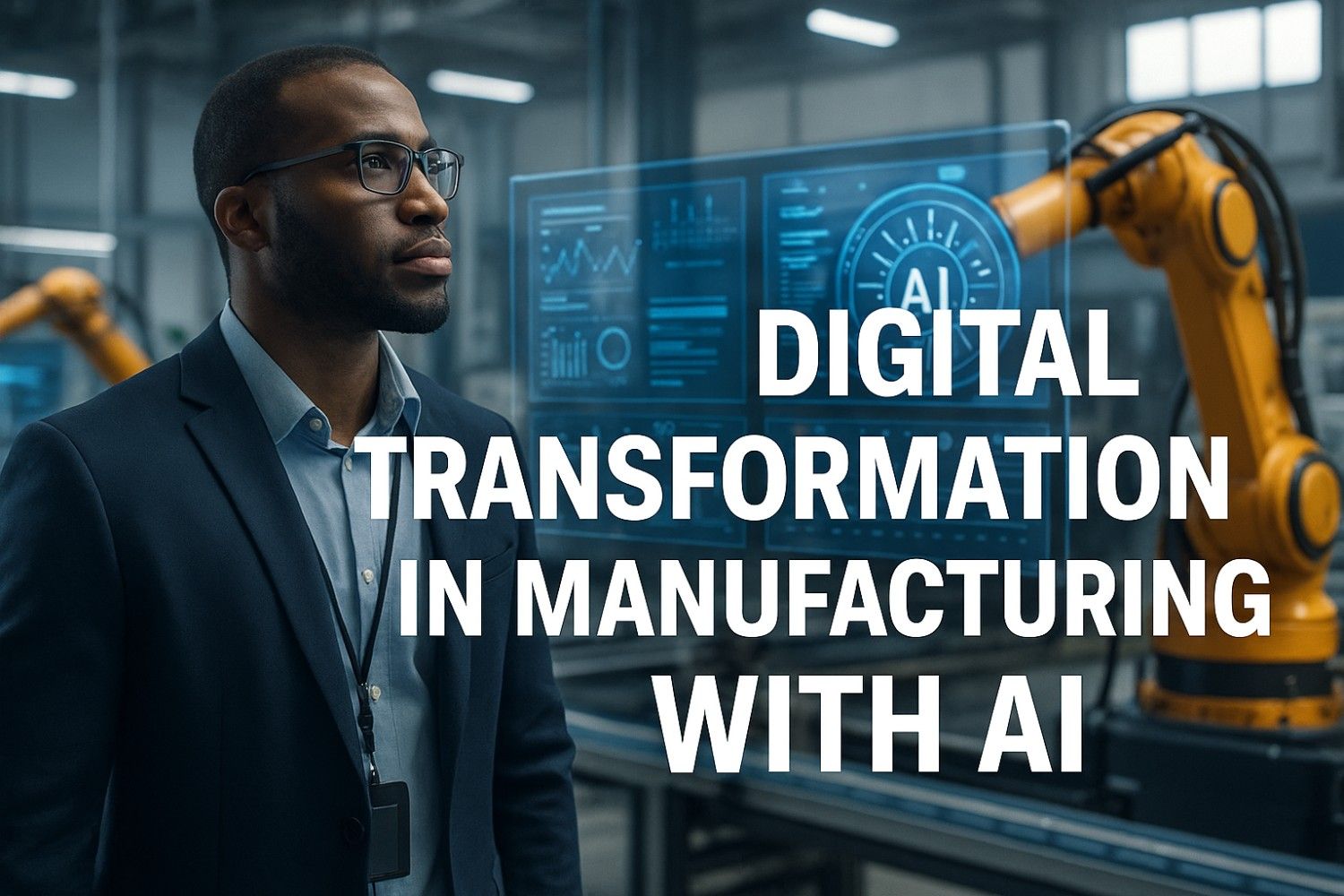
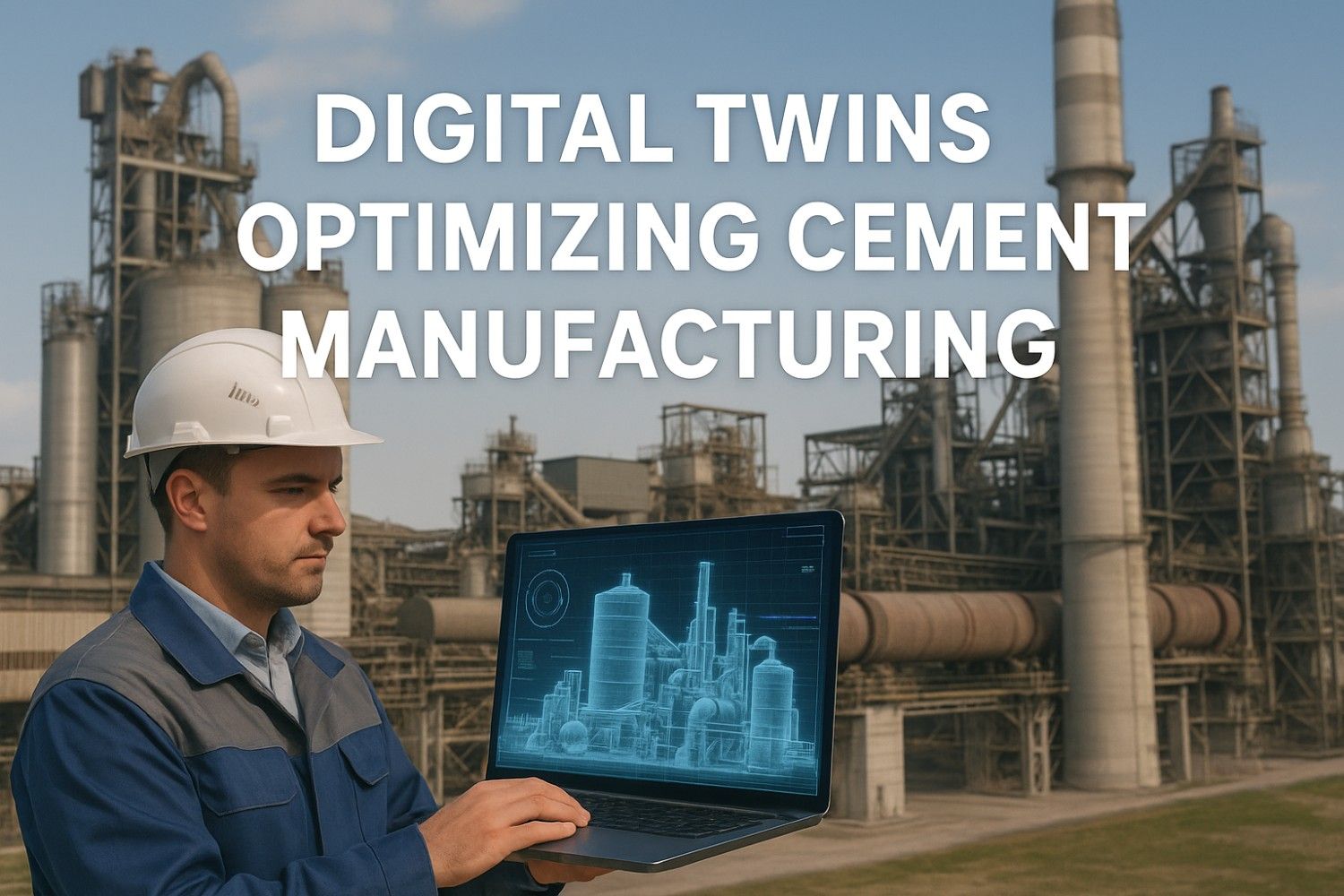
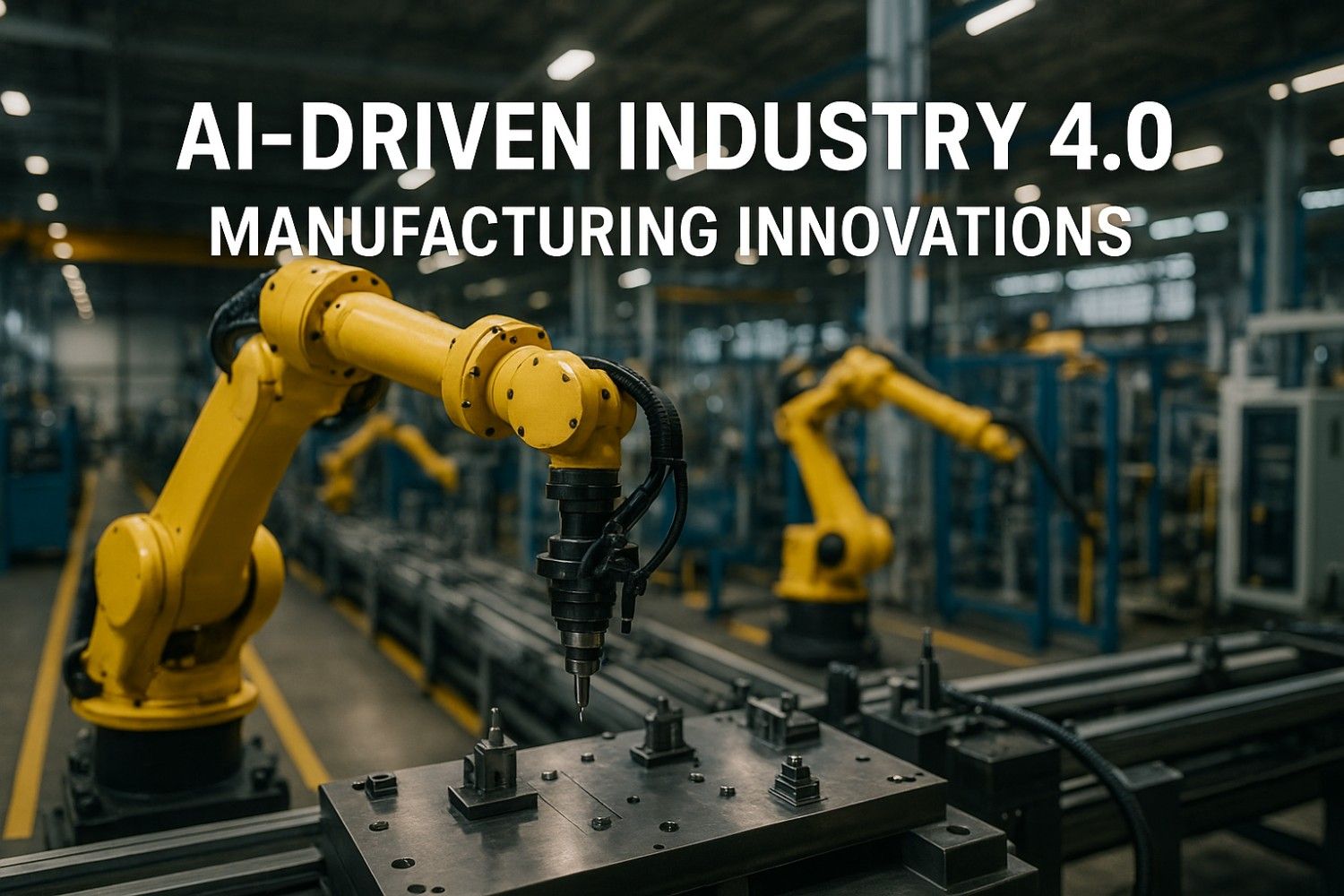
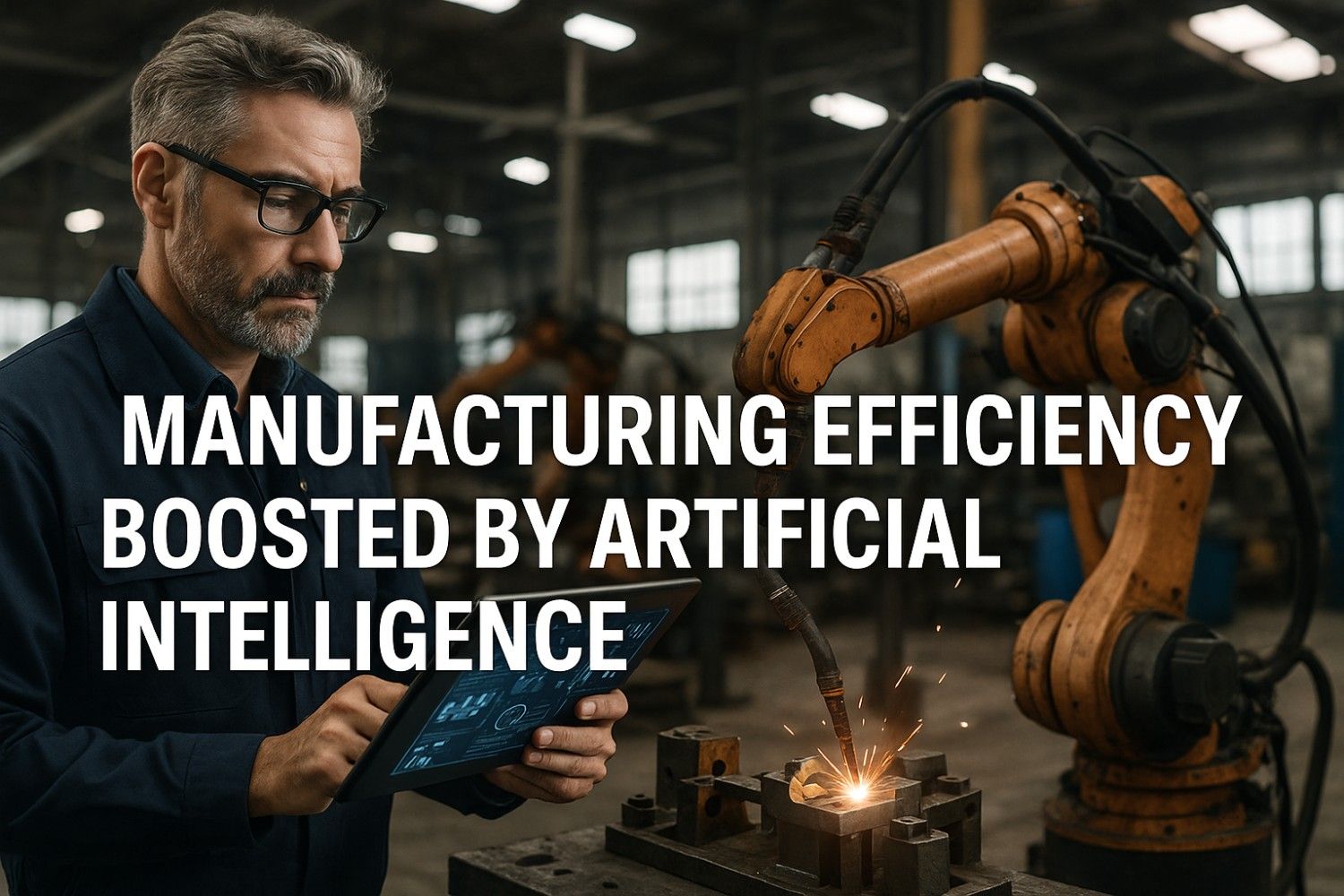
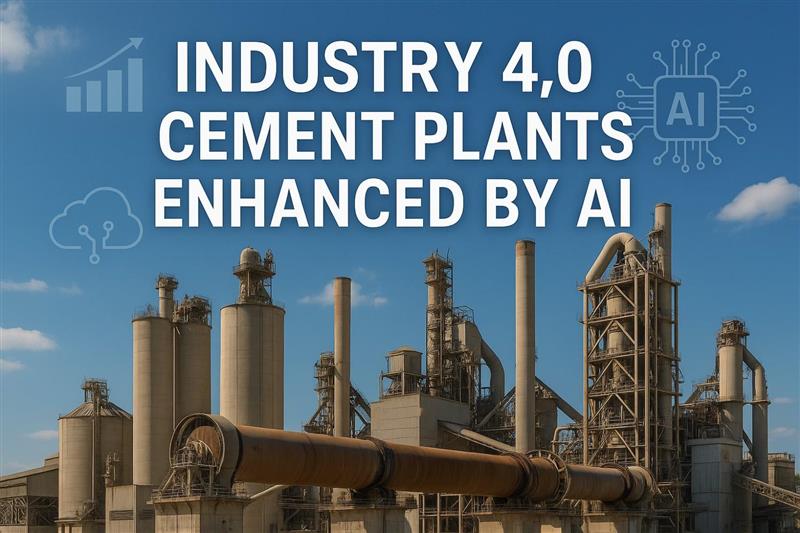
.jpeg)
.jpeg)
